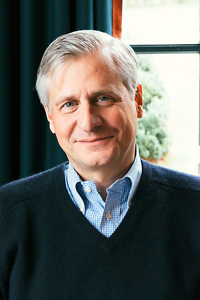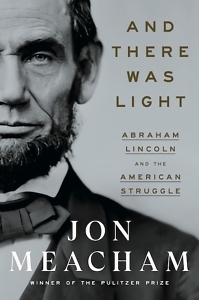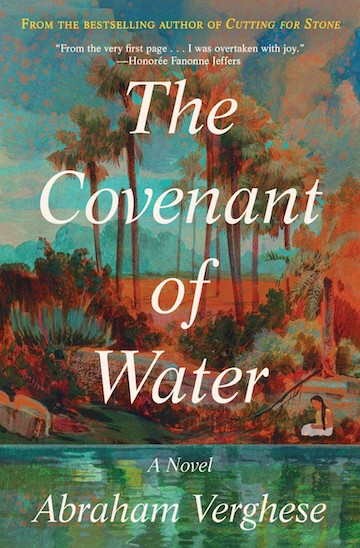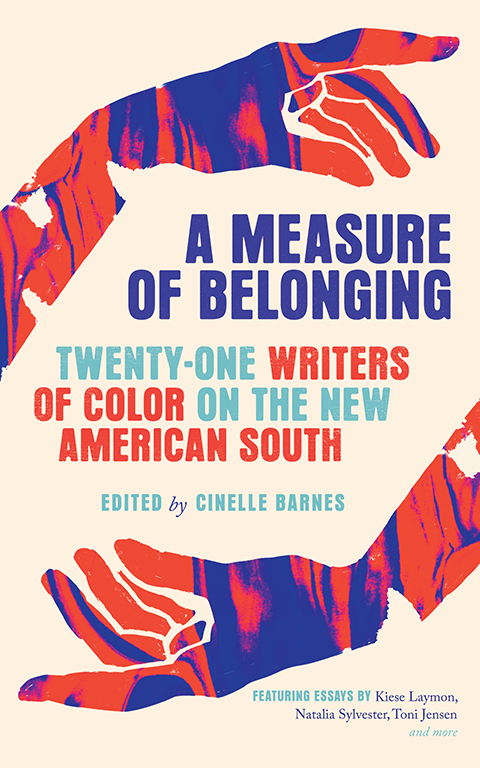How Right Made Might
Jon Meacham highlights Abraham Lincoln’s moral code in a new, essential biography
Pulitzer Prize winner Jon Meacham has set a high bar for himself in penning yet another biography of one of the most written-about personalities in human history. Most American readers believe they already know Lincoln, who maintains his longstanding dominance in virtually any list of the greatest American presidents. But in his new book, And There Was Light: Abraham Lincoln and the American Struggle, Meacham succeeds in his undertaking, creating an essential new addition to the Lincoln canon.

In fact, he completes a trifecta by explaining how Lincoln’s unshakable moral code dictated his politics, by exploding the lingering myth that the Civil War wasn’t really about slavery and by using Lincoln’s story to warn Americans that political extremism is still a threat to the republic.
Lincoln’s rise from the frontier to the halls of power is one of the most compelling success stories in history. Mostly self-educated, the laborer from Illinois became lawyer, president, and international symbol, a paradigm of leadership. His triumphs are so famous that many of the details — essential details — are no longer common knowledge. And if there’s one thing Meacham knows, it’s that history usually turns on those details, the little incidents that propel a person toward their date with destiny.
 In And There Was Light, he reconnects the reader with the Great Emancipator on a personal level, demonstrating that Lincoln’s moral convictions were forged in the poverty and instability of his early family life and by the religion that knit his community together. “Driven by the convictions that the Union was sacred and that slavery was wrong,” writes Meacham, “Lincoln was instrumental in saving one and in destroying the other, expanding freedom and preserving an experiment in popular government that nearly came to an end on his watch.”
In And There Was Light, he reconnects the reader with the Great Emancipator on a personal level, demonstrating that Lincoln’s moral convictions were forged in the poverty and instability of his early family life and by the religion that knit his community together. “Driven by the convictions that the Union was sacred and that slavery was wrong,” writes Meacham, “Lincoln was instrumental in saving one and in destroying the other, expanding freedom and preserving an experiment in popular government that nearly came to an end on his watch.”
Lincoln’s early adoption of anti-slavery beliefs is key to understanding his determination to save the Union. His abolitionist position was not, as is sometimes claimed, mere political calculation in the turmoil of war, but originated in his childhood while attending the anti-slavery churches to which his father belonged. Listening to, and then repeating for family and friends, the sermons preached in those churches convinced him that slavery was un-Christian and prepared him for a life of political speech, where he excelled in making his points and achieving his goals. Meacham quotes many of Lincoln’s words in And There Was Light, including this memorable line based on an early memory of enslaved people: “‘If I ever get a chance to hit’ slavery, Lincoln is said to have later remarked, ‘I’ll hit it hard.’”
The time to strike came with the secession of the Southern states. By the eve of the Civil War, Lincoln had served in the Illinois legislature and the U.S. House of Representatives, where he supported many anti-slavery bills and gained a national reputation as a cautious abolitionist. He had worked to stop any expansion of the institution, but not to destroy it where it existed. When the country descended into intractable sectionalism and extremism, he refused to compromise his position and saw his opportunity to deal a fatal blow to human bondage. The conflict hardened Lincoln’s view that America’s founding documents had set the nation on a path toward expanding liberty, not slavery, and his lifelong love of liberty could not accommodate enslavement of his fellow beings.
Meacham writes with unapologetic admiration of his subject, apparently attempting to correct some of the revisionist history written by liberals and conservatives who seek to emphasize Lincoln’s imperfections and limit his relevance. In And There Was Light, he is telling America that Lincoln should not be made irrelevant. In that effort, Mecham is continuing a theme he has explored before. In works as seemingly disparate as The Soul of America, American Gospel, His Truth Is Marching On, even The Hope of Glory, he presents portraits of moral leadership in troubled times and the lessons to be learned from our imperfect but hopeful efforts to make the world a better place.
Meacham firmly states in the prologue his intent to use the 16th president’s life and times as a historical mirror in which to view the troubles we continue to face: “A president who led a divided country in which an implacable minority gave no quarter in a clash over power, race, identity, money, and faith has much to teach us in a twenty-first-century moment of polarization, passionate disagreement, and differing understandings of reality.” And There Was Light is not just a highly readable presidential biography. It is history with an urgent message.

A Michigan native, Chris Scott is an unrepentant Yankee who arrived in Nashville more than 30 years ago and has gradually adapted to Southern ways. He is a geologist by profession and an historian by avocation.


